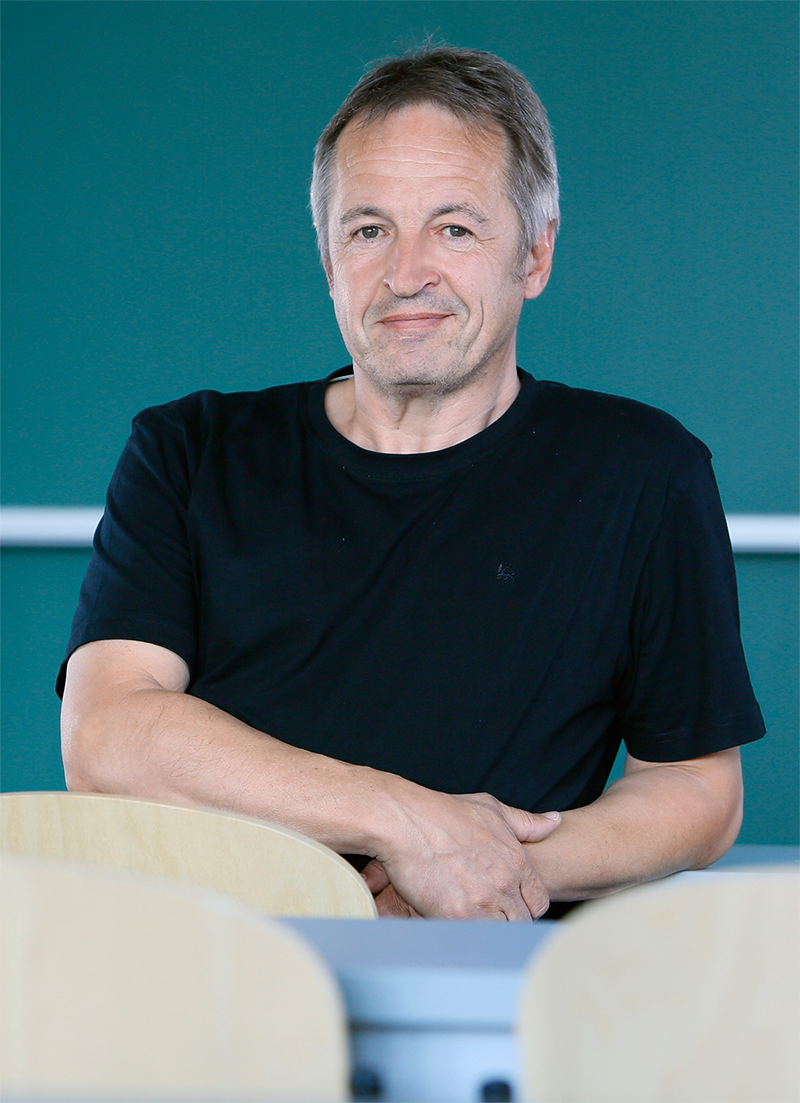ZMB Member Michael Ehrmann
ZMB Member
Michael Ehrmann
Next ZMB-Member
Prof. Dr. Michael Ehrmann
Faculty of Biology
Center of Medical Biotechnology (ZMB)
University of Duisburg-Essen
Universitätsstr. 2
45141 Essen
- +49 201 183 2949
- Website
- Selected Publications
- Publication Metrics
- ZMB Research Program
Molecular and Chemical Cell Biology
Research Overview
Mechanism and Translational Aspects of Protein Quality Control
Each cell hosts thousands of different proteins that vary greatly in copy number and in their chemical properties. Despite this complication, nature has evolved efficient mechanisms of quality control to ensure that all proteins are biologically active, localised to the proper cellular compartment and present in appropriate quantity. This functional state must be maintained under normal as well as under stress conditions. The failure of quality control can influence cell growth and can cause severe diseases ranging for example from bacterial infections to neurodegenerative and arthritic diseases or cancer.
We are studying evolutionarily conserved cellular factors that are involved in key aspects of quality control, such as detection of misfolded proteins, signal recognition and integration into the unfolded protein response pathways and regeneration of the functional state. These studies aim at revealing the general concepts governing the underlying molecular mechanisms of protein diagnosis, repair and degradation.
The focus of our research is on the widely conserved HtrA family of serine proteases that are involved in all aspects of ATP-independent protein quality control. We showed that a protein can combine the antagonistic functions of chaperone and protease activities within a single polypeptide. Furthermore, in collaboration with Tim Clausen (IMP Vienna), it was shown that HtrAs can switch between various oligomeric states and the mechanism of activation by oligomerisation has been elucidated. In recent years, work on human HTRA1 has revealed its involvement in cancer (as a tumor suppressor), in arthritis (by remodelling of the extracellular matrix) and in Alzheimer's disease (by degrading proteins and protein fragments that aggregate to form senile plaques).
Since a number of years we are using chemical biology approaches, mainly in collaboration with Markus Kaiser (Uni Duisburg-Essen), Biotech and Pharmaceutical companies to generate tools for basic research and for drug development purposes. In addition, the structure of HTRA1 with a bound inhibitor provides leads for the search of HTRA1 modulators that are of therapeutic relevance.
Read more

